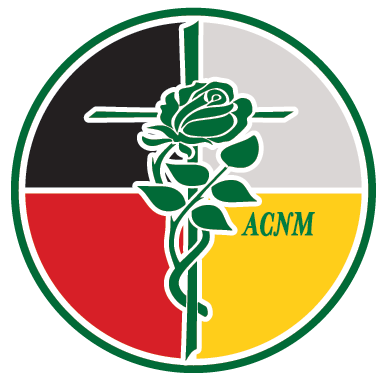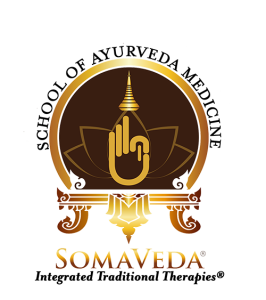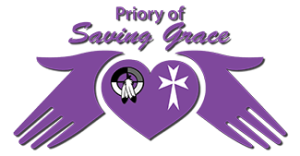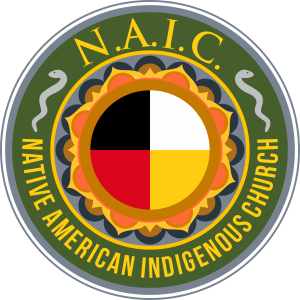N.A.I.C. American School of Ayurveda Medicine: Curriculum
Doctor of Philosophy Sacred Ayurveda medicine: Ph.D.
Authorized Compliant Educational Institution Status with the State of Florida Department of Education Commission of Independent Colleges and Universities and N.A.I.C., A.A.P.N.A., and S.M.O.C.H., our programs are accepted for Commission and Authorization in every state!
Only 18 to 24 months to your Ayurveda Doctorate!
Those exceptional students wishing to complete the requirements for Doctor of Philosophy Sacred Ayurveda Medicine (Ph.D. Sacred Ayurveda) suitable for the U.S. and internationally recognized Licentiate might apply to our post-graduate seminary Degree Program. This Doctor of Philosophy Sacred Ayurveda Medicine (Ph.D. Sacred Ayurveda) Diploma Program may be completed after D.S.N.M./ N.D.(T) requirements. Our Doctor of Philosophy Ayurveda Medicine (Ph.D. Sacred Ayurveda) Diploma qualifies for NAIC/ SMOCH Authorization Under Doctor of Philosophy Ayurveda Medicine (Ph.D. Sacred Ayurveda) depending on final areas of clinical and or counseling specialization.
COURSE GOALS & OBJECTIVES
The entire course of study prepares one to practice Sacred primary care, Sacred natural medicine. The two-course programs are also designed to prepare students to apply to various National and internationally recognized associations for natural treatment for Board Recognition and Authorization (N.A.I.C., A.A.P.N.A., A.N.C.B., S.M.O.C.H.). To ensure continued career success, the graduate will continue to learn new and current information related to techniques, trends, and methods for career development in natural medicine and related fields. The graduate will consider this continuing education a fundamental part of professional growth and development.
For specific details and pricing, please get in touch with the office at N.A.I.C. or call (706) 358-8646
Doctor of Philosophy Sacred Ayurveda Medicine (Ph.D. Ayurveda) Program StudiesThe American School of Ayurveda Medicine (A.S.A.M.) believes that the modern Ayurveda physician and clinical practitioner must be well-grounded in scientific principles and the current practices of natural medicine in addition to the ancient and traditional. Not only is this practical but meets the international educational standards for Ayurveda clinicians set first by the National Government of India and secondly by the UN/ WHO for the practice of Indigenous Ayurveda Medicine. Our teaching approach gives the practitioner a more affordable alternative to new educational vistas by combining resident studies and distance learning. These are not ordinary courses with ordinary content. Each class will be a life-changing ascent toward becoming a natural medicine physician.
Fees: The tuition for thePh.D. Sacred AyurvedaPost-Doctoral Program is$ 13,000.00(U.S.- Post A.S.A. or Equivalent). Offer Valid until March 1st. 2024 5:00 pm Please note: The current tuition allows online degree courses for 36 months only. Suppose the program is not completed with a diploma issued on month 37. In that case, a monthly stipend will be assessed at $189.00 per month until requirements are completed satisfactorily, a diploma is issued, or a student quits the program with 30 days’ notice, whichever comes first. All outstanding fees must be paid in full to qualify for graduation. NAIC AFM Membership is required to be active for the full term of enrollment to qualify for graduation.
|
Graduate Courses, Details
| Doctorate of Philosophy Sacred Ayurveda Medicine (Ph.D. Ayurveda) Curriculum
|
Latin ExpressionsThe quotes have been collected from a variety of sources. The column is designed for the genus irritabile vatum and all other interested ones. |
Prerequisite: Bachelor’s degree; or Technical Degree in a Health Science, e.g., Nursing, Acupuncture, Massage, Medical Technology, etc.; or completion of our Diploma in Ayurveda Medicine Program. |
Omnium artium medicina nobilissima est. Medicine is the noblest of all arts. |
| Vincit omnia veritas. Truth conquers all |
Bio 501. Medical Biology: the study of biological principles with particular emphasis on evolutionary processes on human cellular metabolism, reproduction, natural processes, etc. Introduces basic biology concepts at the organization’s cellular, organismal, population, and global (Gaia) levels and their applications to the human development of a more healthy society. Such concepts and observations of pleomorphic lifeforms give the natural medicine practitioner the knowledge to understand how such mysterious diseases as prion illness can arise from bad agricultural practices that are damaging to life. This course also furnishes a foundation in microbiology, embryology, obstetrics, and gynecology. This course represents an untold saga of different world views of many eminent biologists and naturalists whose viewpoints have all but been removed from the textbooks. |
Non sum pisces. I am not a fish. |
Chem 502. Medical Chemistry: the study of chemistry, organic and inorganic, with particular emphasis on its applications in medical practice and laboratory medicine, as well as pharmacy chemistry and homeopathy. |
Igne natura renovatur integra” Through fire, nature is reborn whole.” |
Bio 503. Advanced Human Anatomy & Physiology: an integrated study emphasizing diagnosis, physiotherapy, massage, and acupuncture topology. The primary objective is to give students a firm understanding of the systemic and cellular mechanisms responsible for maintaining homeostasis in the human organism. Emphasis is placed on understanding how the body’s critical systems interact in controlling function. |
In vivo. Within the living organism. |
Phys 504. Medical Physics: the study of physics with particular emphasis on its applications in medicine, e.g., calculations, physiologic force, electricity, geometrics, etc. Part I: Introduction to Physics; Part II: Medical Hydrology; Part III: Medical Electricity; Part IV: Thermo-therapeutics. |
Lux sits, “Let there be light.” |
Chem 505. Medical Biochemistry: The study of the biological chemistry of living organisms. It includes knowledge of the biological molecules’ structure and function and understanding the precise pathways by which these molecules are synthesized, metabolized, and degraded. It also has advanced principles of Clinical Nutrition. |
Aqua vitae. Water of life |
Bio 506. Patho-Anatomy: An advanced course on Human Anatomy and Gross Pathology. Diagnosis is the first and most crucial part of any treatment. Most students have a theoretical understanding of organ changes in disease but often fail to recognize or appreciate the essential gross findings when presented with an illness or disorder. Learning the precise description of a lesion in an organ or tissue is as much part of medical training as is the physical examination of the patient. Most schools fall short on this issue. |
Tragoediae. Tragic pathos. |
Bio 507. Cell Biology & Embryology: The study of the anatomy, physiology, pathology, and chemistry of the cell with an emphasis on growth and development. Science of the origin and development of the organism from fertilization of the ovum to the end of the eighth week, including all life cycle stages with particular emphasis on maternal gestation, disorders, and nutrition. |
Genus homo. The human race. |
Bio 508. Microanatomy (Histology): Histology is only interesting when it gives better insight into the structure and function of the tissue concerning a patient’s chief complaint. Histology remains the basis for all our physiologic deductions and theories. |
A priori. Reasoning from causes to effects. |
Med 509. Pathology: The pathologic approach to disease shows how disease becomes established, produces effects, and how that translates into the patient’s symptoms: it studies circulatory disturbances, degenerative processes, inflammation, disturbances of growth and development, and neoplasia. Material is taught in a practical, clinical approach rather than by rout memory of pathological slides. |
Saepe morborum gravium exitus incerti sunt. The effects of serious illnesses are often unknown. |
Bio 510. Medical Microbiology & Parasitology: The science concerned with microorganisms, including fungi, protozoa, bacteria, and viruses, as well as helminths parasites, primarily nematodes, cestodes, trematodes, and acanthocephalans. Epidemiology is also surveyed. |
Secundum artermAccording to the rules of art, or use your best judgment |
Med 511. Pathophysiology: The detailed study of the derangement of function seen in disease; alteration in function as distinguished from structural defects. |
Orandum est ut sit mens sana in corpore sano. Let’s hope that there is a healthy spirit in a healthy body. |
Bio 512. Medical Botany: A plant kingdom survey with particular emphasis on medicinal plants. Ninety-nine short lessons survey the various plant families. |
E fructu arbor cognoscitur. The tree can be recognized by its fruits. |
Med 613. Pharmacognosy: A branch of pharmacology concerned with the physical characteristics of botanical and animal sources of crude drugs and vaccines. This course covers the aspects and uses of glycosides, tannins, volatile oils, alkaloids, endocrine products, and antibiotics. |
Primum non nocere. First, do no harm. [From the Hippocratic Oath]. |
Bio 614. Medical Genetics: Genetics has become a cornerstone of biology and the latest intensity in medical research. Stem cell science offers new hope for the regeneration of organs in living humans. Emphasis is placed on concise precepts that lead to the chromosomal theory of heredity and the modern molecular concept of the gene. |
Qualis pater, talis filius. As is the father, so is the son. |
Bio 615. Neurology: The branch of medical science concerns the various nervous systems (central, peripheral, autonomic, and neuromuscular junction and muscle) and their disorders. Pain is one of the most basic symptoms that take a patient to a practitioner for relief. The pathophysiology and the complexities of pain are covered in 7 additional lessons. |
Quae nocent, saepe docent. What hurts often instructs. |
Med 616. Principles of Physical Diagnosis: These lessons cover the basics of signs and symptoms and our new functional diagnosis. |
A priori. Reasoning from causes to effects. |
Med 617. Medical Herbology: A study in herbal medicine and the Materia Medica. The student learns the philosophy behind herbal healing and the uses of flowers, leaves, twigs, bark, and roots. The student understands the formulary. |
Bona diagnosis, bona curatio. Good diagnosis, a good cure.Haec fabula docet. This fable teaches us. |
Med 618. Materia Medica & Pharmacology: A structured study of the biochemical properties of herbs and the therapeutic actions concerning prescription. |
Materia medica. Medical material. |
Bio 619. Hematology & Immunology: The science concerns immunity, induced sensitivity, and allergy. The medical specialty pertains to anatomy, physiology, pathology, symptomatology, and therapeutics related to the blood and blood-forming tissues, emphasizing functional diagnosis and nutrition. |
Bene diagnoscitur, bene curatur. Something that is well diagnosed can be cured well. |
Bio 620. Endocrinology: The science and medical specialty concerned with internal or hormonal secretions and their physiologic and pathologic relations with particular emphasis on chronic, degenerative diseases (diabetes, hypothyroidism, adrenal fatigue syndrome, etc.). |
Tolle Causum. Treat the underlying cause of the disease. |
Phys 621. Electromedical Physics: This last phase of studies represents the clinical and practical challenges for the self-paced, advanced student. Clinical residency on Nevis is a mandatory part of the process where the student’s diagnostic and therapeutic skills are advanced. Here the Mentor-student relationship is bonded as the student learns the fine points of diagnosis and therapeutic regimens. The emphasis is on electrodermal diagnosis and herbal prescriptions in the primary care, natural medicine setting. This is the final phase of the Doctoral Program leading to D.S.N.M. |
Primum Non Nocere.First, Do No Harm. |
Med 622. Behavioral Science: The basic concepts of psychiatric evaluation and treatment for the primary care physician are offered to provide the understanding necessary for everyday practice. |
Integra mens augustissima possessio. A sound mind is the most majestic possession. |
Med 623. Clinical Medicine: This last phase of studies represents the ultimate challenge for the self-paced, advanced student. Clinical residency on Nevis is a mandatory part of the process where the student’s diagnostic skills are advanced. Here the Mentor-student relationship is established, and a course of study is planned. Emphasis is on Bedside diagnosis and learning basic laboratory skills in the primary care, natural medicine setting: Interrogation & History, Auscultation, Palpation diagnosis, Functional medical diagnosis, and Laboratory examination of Blood and Urine. The course is supplemented with over 60 hours of lectures on various medical topics – internal medicine, obstetrics, gynecology, oncology, surgery, general practice, emergency medicine, etc. |
Ars longa vita brevis. The craft of medicine takes a lifetime to acquire. |
|
|
|
| Verba docent, exempla trahunt. Words instruct, examples (or illustrations) lead. Ex nihilo nihil fit. Work is required to succeed. COURSE GOALS & OBJECTIVESThe entire course of study (A.S.A./ P.N.M.A. & D.N.M. & Ph.D. Ayurveda) prepares one to practice primary care, wellness, and natural medicine as a ministerial practitioner of conscience. The two-course programs are also designed to prepare students to pass Naturopathic National Boards and qualify for Vocational and Medical Authorization via (A.N.C.B., A.A.P.N.A., N.A.I.C., and S.M.O.K.H.) To ensure continued career success, the graduate will continue to learn new and current information related to techniques, trends, and methods for career development in natural medicine and related fields. The graduate will consider this continuing education a fundamental part of spiritual and professional growth and development. The Undergraduate Associate of Sacred Arts in Traditional Natural Medicine: Ayurveda (A.S.A.) (2,595 hours): There are 1,245 clock hours of academic (online) study, coupled with 1,350 hours of seminars, workshops, and clinical observations. Each candidate is appraised on individual status. Healing arts practitioners, e.g., Massage therapists, Nutritionists, Acupuncturists, Nurses, etc., may apply for the advanced position and life experience. The Graduate Philosophy Doctorate Program in Sacred Ayurveda Medicine (Ph.D.) (2,000 hours): There are 1400 clock hours of academic (online) study and 600 hours of seminars, workshops, and clinical observations. Practitioners of the healing arts, e.g., N.D.s, M.D.s, DOs, D.C.s, and others of advanced standing, can apply for credits and waivers. Diploma program graduates require only 300 hours of clinical observations (2,000 hours total). Why the two Programs? The Diploma program allows one to make a career change with the candidate having only high school knowledge of biology and chemistry. The Sacred Ayurveda Doctorate program is based on the same subjects as in a traditional medical school but on a different premise of content, as rote memorization of facts is not the desired goal but rather personal integration of the subject matter that can be applied immediately and clinically. Non scholae sed vitae discimus. We learn not for school but for life. N.A.I.C. SomaVeda Accreditations, Approvals, and Recognitions
Educational Programs Accredited/ Compliant State of Florida D.O.E., N.A.I.C., A.A.P.N.A., and A.N.C.B. If you want to start more simply and with less cost and commitment… Consider one of our other great educational programs: 1) (CTP1) Certified SomaVeda® Thai Yoga Practitioner Program ( 164 CE hours.) 2) (A.L.C.) Ayurveda Lifestyle Consultant Certificate (535 CE Hours.)(Meets or exceeds National Ayurvedic Medical Association Guidelines for Membership) 3) (A.Y.T.) Ayurvedic Yoga Therapy Certificate (1008 CE Hours.)(Meets or exceeds National Ayurvedic Medical Association Guidelines for Membership) 4) (TCP) SomaVeda® Thai Yoga Teacher Certification Program (1028 CE hours: The most comprehensive Thai Yoga teacher training in the country) Does A.C.N.M. Participate or offer Federal or State Financial Aid/ Grants or Tuition assistance? No, we do not. As a Private, spiritually based Native American Tribal Organization, Ecclesiastical or Church Seminary, we do not participate in secular or state funding for educational purposes. Instead, our N.A.I.C.: A.C.N.M. Degree programs are on a donation basis, allowing us the freedom to be very generous regarding tuition and scholarships. Considering the current tuition in schools and programs which participate in Federal funding, even if an average student qualified for the maximum in grants and financial aid, they would often still pay out of pocket anywhere from two to ten times S.C.N.M. tuition! Our tuition structure does not leave students with many student loans to repay after graduation! Most students find they have made back multiples of their tuition and expenses before graduation! Important: Please Note! N.A.I.C. Inc./ American College of Natural Medicine/ Thai Yoga Center Cancellation and Refund Policies apply to all registrations and reservations for courses and programs. N.A.I.C./ Thai Yoga Center Programs are not public. They are offered exclusively under the expressed religious/ private association, and acceptance of these Posted Refund and Cancellation Policies and RPGs are a precondition towards approval and participation in any program or course of study. Click Here for the Refund and Cancellation Policy A.C.N.M. SomaVeda® programs at http://www.ThaiYogaCenter.Com Call or write to us today! N.A.I.C. Inc.(American School of Natural Medicine/ Thai Yoga Center) (706) 358-8646 Native American Indigenous Church (N.A.I.C.) 5401 Saving Grace LN, Brooksville, FL 34602 SomaVeda Integrated Traditional Therapies®, SomaVeda® is a Federally Registered Trademark/ Servicemark and proprietary Intellectual Property, All World Rights Reserved. |
|||||||||||||||||||||||||||||||||||||||||||||||||||||||||||||||||||||||||||||||||||||||




